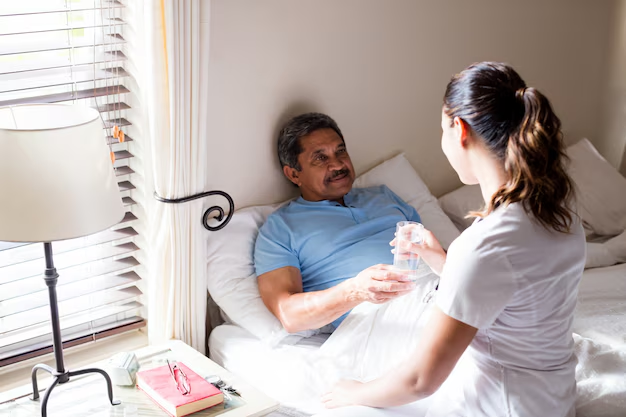Understanding Pneumonia: Signs, Management, and Recovery
Few illnesses have the ability to shift daily life as dramatically as pneumonia. Whether you know someone affected by it or wish to arm yourself with knowledge, understanding how to tackle pneumonia can greatly impact your response and recovery. This guide provides an insightful look into the management and treatment of pneumonia, balanced with ways to support recovery and prevent further complications.
What Is Pneumonia?
Pneumonia is a respiratory infection that inflames the air sacs in one or both lungs. These air sacs may fill with fluid or pus, causing symptoms like a cough with phlegm or pus, fever, chills, and difficulty breathing.
Common Causes and Risk Factors
Pneumonia can be caused by a variety of organisms, including bacteria, viruses, and fungi. Risk factors for contracting pneumonia include:
- Age: Young children and older adults
- Chronic Diseases: Conditions such as asthma, diabetes, or heart disease
- Weakened Immune System: Due to HIV/AIDS, chemotherapy, or transplant medication
- Smoking: Damages lung immune defense
Recognizing Symptoms Early
Being able to spot symptoms early can make a significant difference. Common signs include:
- Persistent cough that may produce phlegm
- Chest pain when breathing or coughing
- Fever, sweating, and chills
- Shortness of breath
- Fatigue and muscle aches
Monitoring for changes and seeking medical advice accordingly helps manage the condition effectively.
Diagnostic Processes
If pneumonia is suspected, a healthcare provider may conduct various tests to confirm the diagnosis. These tests often include:
- Chest X-ray: Confirms the presence of pneumonia
- Blood Tests: Identify the organism causing the infection
- Sputum Test: Examines the fluid from the lungs to determine the infectious agent
- Pulse Oximetry: Measures the oxygen level in your blood
Effective Treatment Approaches
The treatment of pneumonia depends on its type and severity. While medication forms the cornerstone of treatment, other supportive measures play critical roles.
Medications
- Antibiotics: Prescribed for bacterial pneumonia. It's essential to complete the full course, even if symptoms improve.
- Antiviral Drugs: Used for viral pneumonia. Recovery might take longer and often requires supportive care.
- Antifungal Medication: Prescribed for pneumonia caused by fungi, more common in individuals with weakened immune systems.
Supportive Care
- Rest: Essential for recovery as it helps your body heal.
- Hydration: Critical in loosening phlegm and maintaining overall health.
- Pain and Fever Control: Over-the-counter medications like acetaminophen or ibuprofen can alleviate discomfort.
Home Remedies and Lifestyle Adjustments
For mild pneumonia cases or as part of supportive care, certain home remedies and lifestyle changes can foster recovery:
Maintaining a Healthy Environment
- Humidifiers: Adding moisture to the air can help ease breathing and reduce throat irritation.
- Air Quality: Avoid exposure to smoke and maintain good ventilation.
Dietary Considerations
- Nutritious Diet: Supports the immune system. Prioritize fruits, vegetables, and proteins.
- Warm Fluids: Soups and teas can soothe the throat and help manage mucus.
Monitoring Symptoms
Tracking any deterioration in symptoms is crucial. Seek medical help if symptoms worsen or don't improve.
Risk Reduction and Prevention
Preventive measures can significantly reduce the likelihood of contracting pneumonia:
Vaccinations
- Pneumococcal Vaccine: Recommended for young children, older adults, and people with chronic conditions.
- Flu Vaccine: Helps prevent flu-related pneumonia.
General Health Precautions
- Hand Hygiene: Regular washing to prevent the spread of infections.
- Healthy Lifestyle: Exercise, a balanced diet, and adequate sleep to boost overall immunity.
Avoid Smoking
Smoking cessation is crucial as smoking damages lung tissue, making them more susceptible to infections.
Supporting Recovery
Recovery timelines vary by individual severity and health status but typically include:
- Follow-up Care: Regular check-ups to ensure the infection has cleared.
- Gradual Increase in Activity: Start with light activity, gradually progressing as energy levels improve.
Emotional and Mental Wellbeing
Dealing with pneumonia can be taxing mentally. Support from loved ones and, if necessary, speaking with mental health professionals can benefit recovery.
Conclusion: A Proactive Approach to Lung Health
Understanding pneumonia, its causes, and treatment options not only aids those currently affected but also empowers preventative strategies. With a proactive approach, including vaccinations and lifestyle changes, you can maintain better lung health and reduce the risk of pneumonia. Remember, while it's instructive to be informed about symptoms and risks, consulting healthcare providers for personal medical advice is crucial.
Summary: Key Points for Managing and Preventing Pneumonia
- 🩺 Know the Symptoms: Early detection through monitoring symptoms like persistent cough, fever, and chest pain.
- 💊 Medication Matters: Follow through with prescribed antibiotics or antivirals for effective treatment.
- 🏡 Supportive Care: Rest, hydrate, and manage symptoms with OTC medicines.
- 🥗 Healthy Habits: Nutritious diet, adequate sleep, and avoiding smoking support lung health.
- 🛡️ Prevention Pays Off: Get vaccinated and practice good hand hygiene.
- 🌿 Environmental Adjustments: Use humidifiers and ensure clean air quality in living spaces.
- 🔄 Routine Follow-Up: Keep track of recovery progress and consult healthcare professionals as needed.
With the right knowledge and care, navigating the challenges of pneumonia becomes manageable while setting the foundation for healthier living moving forward. 🧡

Related Articles
- a Typical Pneumonia
- Can a Cold Turn Into Pneumonia
- Can a Sinus Infection Turn Into Pneumonia
- Can Amoxicillin Cure Pneumonia
- Can Amoxicillin Treat Pneumonia
- Can Baby Oil Cause Pneumonia
- Can Bronchitis Turn Into Pneumonia
- Can Covid Turn Into Pneumonia
- Can Doxycycline Treat Pneumonia
- Can Flu Turn Into Pneumonia
